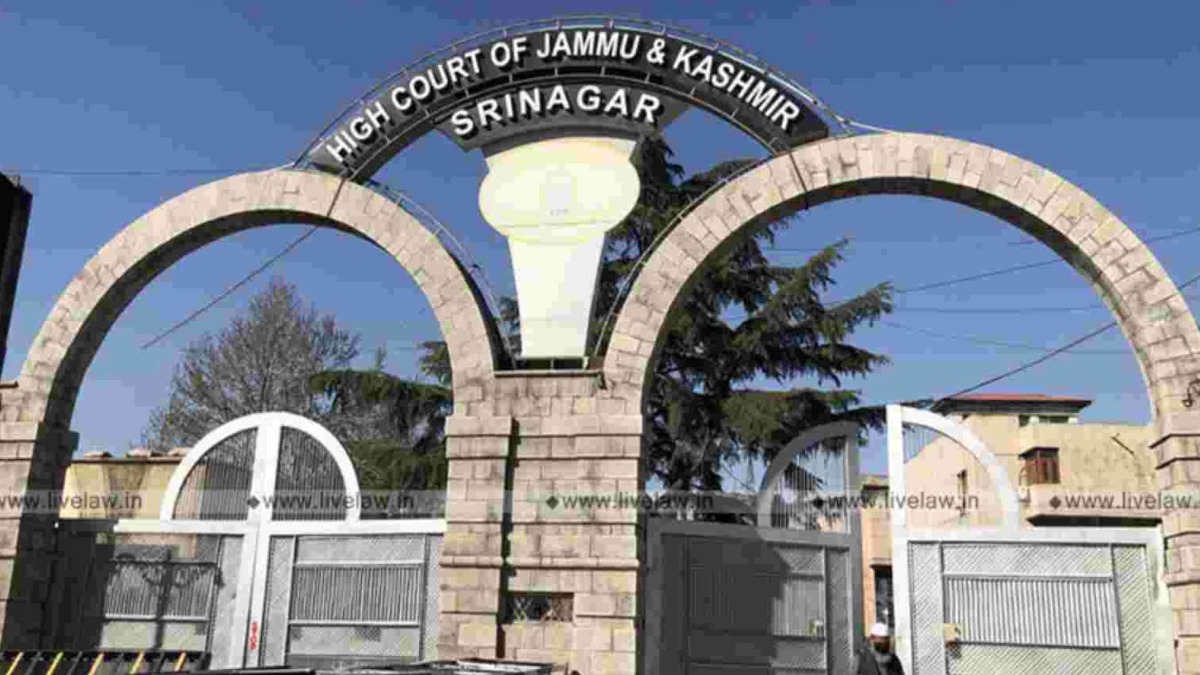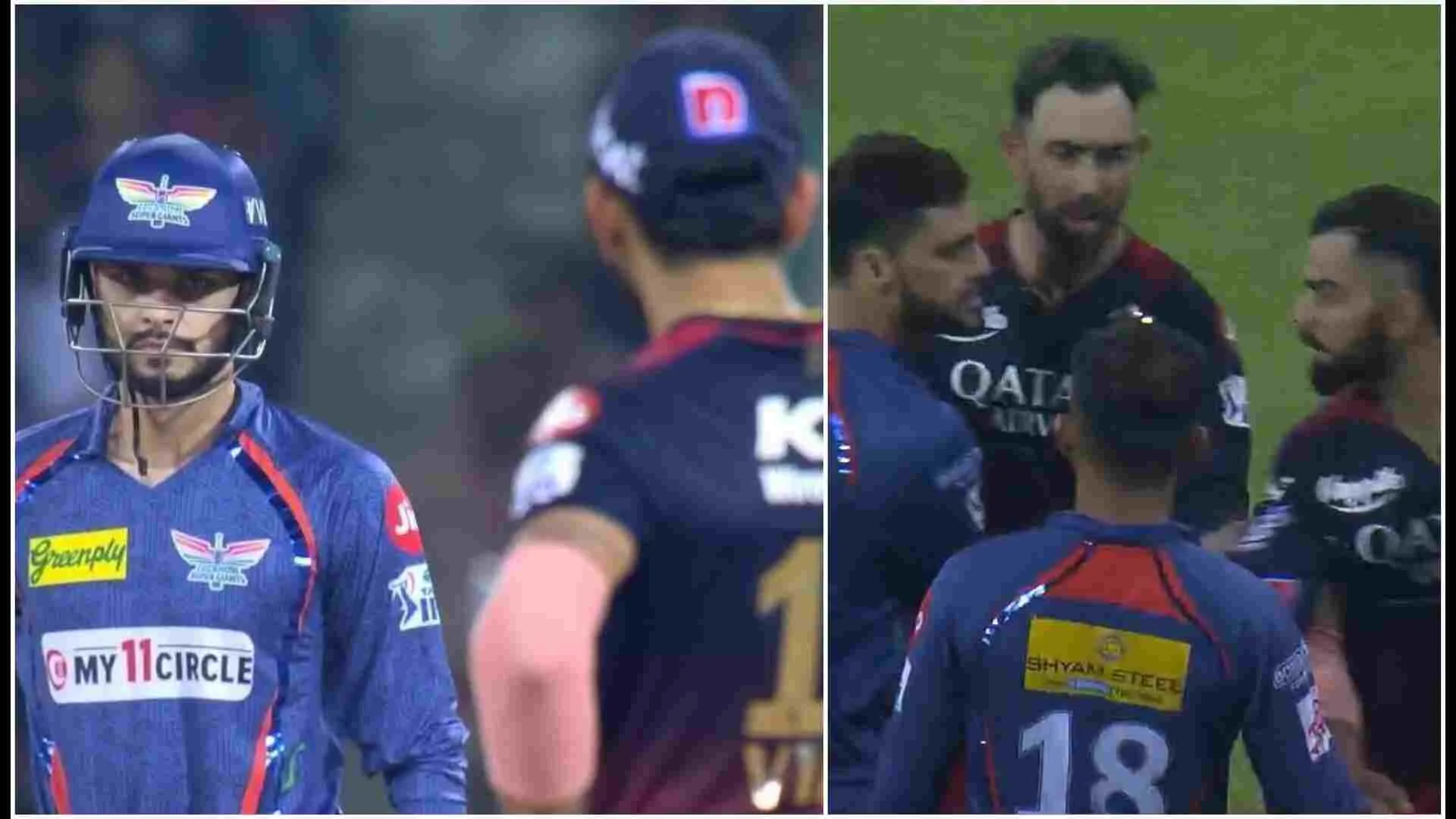It is really most heartening to see that in an extremely commendable, cogent, concise composed and courageous judgment titled Ghulam Mustafa & Anr V/s UT of J&K&L in Crl A(S) No. 48/2019 CrlM Nos. 2432 & 1080/2021 CrlM Nos. 391 & 445/2022 that was reserved on May 17 and then finally pronounced on May 19, 2022, the Jammu and Kashmir and Ladakh High Court has most rightly, robustly and rationally reiterated that as per the provision under Section 389 of CrPC, if the convict is punished with imprisonment for a term less than ten years, no notice is required to the Public Prosecutor/State regarding the application filed by the accused for suspension of his sentence and release on bail. This clearly implies that the Court wants that the application for suspension of sentence should be considered liberally if punishment is less than 10 years. The Court was hearing a criminal appeal under Section 374 of CrPC which was directed against the judgment of conviction and order of sentence where the appellant were found guilty of offence under Section 307, 451, 34 of the Ranbir Penal Code and sentenced to go for rigorous imprisonment for ten years with a fine of Rs 10,000.
CRLM NOS. 391 & 445 OF 2022
To start with, this brief, brilliant, bold and balanced judgment authored by a single Judge Bench comprising of Hon’ble Mr Justice Mohan Lal of Jammu and Kashmir and Ladakh High Court sets the pitch in motion by first and foremost putting forth in para 1 that, “Instant criminal appeal under Section 374 Cr.P.C is directed against judgment of conviction dated 30.10.2019 and order of sentence dated 30.10.2019 rendered by the Court of learned 2nd Additional Sessions Judge, Jammu in file No. 33/Sessions titled “State v/s Ghulam Mustafa & Anr.” where under appellants/convicts have been found guilty of commission of offences u/s 307, 451, 34 RPC and sentenced to undergo rigorous imprisonment for (10) years and also fine in the sum of Rs.10,000/.”
Needless to say, the Bench then aptly mentions in para 2 that, “Feeling aggrieved of the impugned judgment of conviction, appellants/convicts have assailed it’s correctness, propriety and legality on the grounds, that as a result of miss-appreciation of facts and misapplication of law so far as the finding of the trial court relating to holding appellants guilty of having committing of offences under Sections 307, 451, 34 RPC and convicting them of the same is bad in the eyes of law, therefore, prayed that the present appeal be allowed the judgment of learned 2nd Additional Sessions Judge, Jammu be set aside.”
To put things in perspective, the Bench then enunciates in para 3 that, “Alongwith the appeal, appellants/convicts have filed applications for suspension of conviction and sentence pending the hearing of appeal, with further prayer for ordering them release on bail primarily on the ground that there is no likelihood of the appeal being heard in the near future, and in view of the law laid down by the Supreme Court wherein it has been held that when a convicted person is sentenced to a fixed period of sentence, on filing of appeal, suspension of sentence should be considered liberally unless there are exceptional circumstances; that the bail applications of both the appellants/convicts filed earlier were rejected vide order dated 02.07.2020 of this Court and to obviate the apprehension of the appellants of there being no likelihood of hearing of the appeal in near future and this Court directed the matter to be listed for hearing on 18.08.2020, thereafter the matter was listed more than 10 times but the arguments in the appeal could not be considered which further constrained the appellant/convict No.2 to file another application for grant of bail bearing CrlM No. 1612/2020, which was further rejected by this Court vide order dated 03.09.2021 on the ground that the appellant No.2 has not even undergone a substantial period of sentence and therefore, it was not a stage for showing indulgence of this Court; that the appellant/convict No.2 is suffering from kidney related ailments and is having only one kidney and the other one stands removed even before the conviction.”
As it turned out, the Bench then observes in para 4 that, “Respondent has filed objections wherein it has been stated that both the appellants/convicts are the main accused in case FIR No. 14/2005 for commission of offences U/S 307, 326, 451, 34 RPC registered at Police Station Gharota, Jammu; that it has been established by the court below that appellants/accused persons have been convicted after full trial and the entire testimonies of the witnesses would narrate as how brutally and with scant regard and fear of the convicts has chopped the arm of the victim; that the appellants deserve no lenience and there are cogent reasons and chances that they would escape the clutches of law as they have come to know that they cannot be absolved of the crime, thus there is every eventuality of the fleeing away justice; that no case of suspension of sentence is made out as the offences for which the accused persons/appellants are charged is of heinous nature and these offences definitely constitute a class apart and need to be viewed with a different approach in the matter of bail; that the case of the appellants are also not covered under the Supreme Court judgments as they have not been in the prison for half of their sentence, therefore, the application be dismissed.”
Most significantly, the Bench after hearing the learned counsels from all sides then while citing relevant provisions and relevant case laws expounds in para 7 that, “Heard & considered. Section 389 of Code of Criminal Procedure deals with the provisions of suspension of sentence pending the appeal. For the sake of convenience Sec. 389 Cr.PC is reproduced hereunder:-
389. Suspension of sentence pending the appeal; release of appellant on bail.—(1) Pending any appeal by a convicted person, the Appellate Court may, for reasons to be recorded by it in writing, order that the execution of the sentence or order appealed against be suspended and, also, if he is in confinement, that he be released on bail, or on his own bond:
[Provided that the Appellate Court shall, before releasing on bail or on his own bond a convicted person who is convicted of an offence punishable with death or imprisonment for life or imprisonment for a term of not less than ten years, shall give opportunity to the Public Prosecutor for showing cause in writing against such release:
Provided further that in cases where a convicted person is released on bail it shall be open to the Public Prosecutor to file an application for the cancellation of the bail.]
(2) The power conferred by this section on an Appellate Court may be exercised also by the High Court in the case of an appeal by a convicted person to a Court subordinate thereto.
(3) Where the convicted person satisfies the Court by which he is convicted that he intends to present an appeal, the Court shall,-
(i) where such person, being on bail, is sentenced to imprisonment for a term not exceeding three years, or
(ii) where the offence of which such person has been convicted is a bailable one, and he is on bail, order that the convicted person be released on bail, unless there are special reasons for refusing bail, for such period as will afford sufficient time to present the appeal and obtain the orders of Appellate Court under Sub-Section(1); and the sentence of imprisonment shall, so long as he is so released on bail, be deemed to be suspended.
(4) When the appellant is ultimately sentenced to imprisonment for a term or to imprisonment for life, the time during which he is so released shall be excluded in computing the term for which he is so sentenced.
Cursory glance of Section 389 Cr.PC makes the legal proposition abundantly clear, that pending an appeal preferred by a convicted person notice shall only be issued to the Public Prosecutor/State in case the convict is punished for offences punishable with death or imprisonment for life or imprisonment for a term not less than ten (10) years, which clearly connote that if the convict is punished with imprisonment for a term less than 10 years no notice is required to be given to the Public Prosecutor/State in regard to the application filed by the convict/accused for suspension of his sentence and his release on bail.
In the case of BHAGWAN RAMA SHINDE GOSAI AND OTHERS Versus STATE OF GUJARAT [(1999) 4 Supreme Court Cases 421], Hon’ble Supreme Court while discussing the power and scope of section 389 Cr.PC regarding suspension of sentence pending the appeal filed by the convict, and while holding that the prayer for suspension of sentence should be considered liberally unless there is any statutory restriction, and while suspending the sentence and directing appellant/accused/convict to be released on bail found guilty for commission of offences u/ss 392 r/w 397 IPC for rigorous imprisonment of 10 years by the trail court, in paras 3&4 of the judgment held as under:-
3. When a convicted person is sentenced to fixed period of sentence and when he files appeals under any statutory right, suspension of sentence can be considered by the appellate court liberally unless there are exceptional circumstances. Of course if there is any statutory restriction against suspension of sentence it is a different matter. Similarly, when the sentence is life imprisonment the consideration for suspension of sentence could be of a different approach. But if for any reason the sentence of limited duration cannot be suspended every endeavour should be made to dispose of the appeal on merits more so when motion for expeditious hearing the appeal is made in such cases. Otherwise the very valuable right of appeal would be an exercise in futility by efflux of time. When the appellate court finds that due to practical reasons such appeals cannot be disposed of expeditiously the appellate court must bestow special concern in the matter of suspending the sentence. So as to make the appeal right meaningful and effective. Of course appellate courts can impose similar conditions when bail is granted.
4. In this case as the High Court was not inclined to hear the appeal expeditiously we are of the view that the sentence passed on appellants can be suspended on some stringent conditions. We, therefore, suspend the sentence and direct the appellants to be released on bail on each of them executing a bond to the satisfaction of Additional Sessions Judge, Nadiad. We direct the appellants to report to Kapadwang Police Station on all Mondays and Thursdays between 4.00p.m. and 6.00 p.m. until disposal of the appeal pending before the High Court.
Ratio of the judgment (Supra) makes it manifest, that Section 389 Cr.PC does not contain any “statutory restriction” in suspension of sentence and granting of bail to the accused/convict and the prayer should be considered liberally and the Appellate Court may impose restrictions considering the gravity of offence.
Similarly, in the case of Vajida Bano and Ors V/s State Through Advocate General, this Court while relying upon the judgment of BHAGWAN RAMA SHINDE GOSAI’S (Supra) suspended the sentence of appellant/convicts, convicted and sentenced in FIR 09/2014 for commission of offences u/ss 363/317/ 302/ 120-B & 201 RPC of P/S Kargil.
In the case of State of Haryana Vs Hasmat (decided by Hon’ble Supreme Court of India on 26th July 2004 in Appeal Crl. 715-717 of 2004), relied by Ld. Counsel for respondent/victim, Hon’ble Supreme Court set aside the order of Punjab & Haryana High Court regarding the suspension of sentence and enlargement of accused/convict on bail convicted for commission of offences u/ss 148/302/307/324 r/w Sec. 149 of IPC r/w 25/27 Arms Act on the ground of seriousness of offence wherein the relevant facts like the “nature of acquisition” the manner in which crime was committed, “the gravity of offence” and the desirability of releasing the accused on bail after they were convicted for committing serious offence of murder, and the said aspects were not considered by the High Court which passing the impugned order of suspension/bail.
In the case of Bholu Vs State of U.P. (Crl. Misc. Application No. 124973 of 2017) decided by Allahabad High Court on 04-05-2018 relied by Ld. Counsel for respondent/victim, Hon’ble Allahabad High Court rejected the 1st and 2nd bail applications of accused/appellant/convict even though he was in jail for 9 years on the ground that the appellant/convict was convicted for heinous offence of 2 murders.
In another case relied by Ld. Counsel for respondent titled Mahesh Pahade Versus State of Madhya Pradesh) [Criminal Appeal No. 933/2014 decided on 18th July 2018] the Division Bench of Madhya Pradesh High Court relaying upon the plethora of decisions of Hon’ble Supreme Court viz; 1. (2018) 3 SCC 187 (Lachhman Dass vs. Resham Chand Kaler and Another); 2. (2016) 6 SCC 699 (Amanullah and Another vs. State of Bihar and others); 3. (2009) 6 SCC 767 (National Human Rights Commission vs. State of Gujarat and others); 4. (2006) 3 SCC 374 (Zahira Habibullah Sheikh and another vs. State of Gujarat and others); 5. (2001) 6 SCC 338 (Puran etc. vs. Rambilas and another etc.); 6. (2000) 2 SCC 391 (R. Rathinam vs. State by DSP); 7. (1980) 3 SCC 141 (P.S.R. Sadhanantham vs. Arunachalam and another); 8. (1979) 4 SCC 719 (Rattan Singh vs. State of Punjab), held, that the victims of heinous crime cannot be denied the right to address their grievances before the court of law. In the decision (Supra) Hon’ble 8 CrlM Nos. 391 & 44 Madhya Pradesh High Court held, that Section 372 of Code of Criminal Procedure gives right to victim to file an appeal against order of conviction which clearly gives right to the prosecutrix a victim of heinous crime on her person to approach the court for cancellation of bail. The case laws relied upon by Ld. Counsel for respondent/victim only lay down an invariable principle of law that in cases punished with imprisonment of less than ten (10) years even no notice is required to be given to the State/Public Prosecutor, however, in heinous offences like that of murders u/s 302 IPC, the court has the power/jurisdiction to grant or refuse the suspension of sentence and bail. In the case in hand, appellants/convicts have been found guilty by the trial court of 2nd Additional Sessions Judge Jammu for commission of offence u/s 307, 451, 34 RPC and sentenced to undergo rigorous imprisonment for (10) years and also fine in the sum of Rs.10,000. Vide ratio of the judgment of Bhagwan Ram Shinde Gosai’s and others case (1999) 4 Supreme Court Cases 421 (Supra), relied by Ld. Counsels for appellants/convicts, there is no statutory restriction/prohibition in not considering the application for suspension and releasing of appellants/convicts on bail. Appellant/convict No.1 is resident of Sagar Nallah Graint Ranjan, Tehsil Jammu while appellant/convict No.2 is resident of Bye Dhara Gursai, Tehsil Mendhar and both them have deep roots in the society and do not possess the golden wings to flee from justice, as nothing substantial has been brought before the notice of this court that appellants/convicts have absconded during trial. The seriousness or gravity of offence is to be seen in cases where accused/convict is punished with death penalty, life imprisonment or imprisonment of 10 years and above, wherein, while considering the application for suspension and bail the judicial description lies in the wisdom of the court. Right to life and liberty of an individual is precious under Article 21 of the Constitution of India and is also a very valuable right of accused/convict which also continues during the appeal period as appeal is the continuation of the trial.”
While batting for suspension of sentence, the Bench then hastened to add in para 8 that, “Keeping in view the facts that the applicants/appellants are in custody for the last more than two and half years of the total sentence imposed and applicant/appellant No.2 is suffering from kidney related ailment and there is no immediate prospect of the main appeal being heard in near future, a fit and proper case for suspension of sentence is made out.”
As a corollary, the Bench then stipulates and directs in para 9 that, “As a sequel to the aforesaid discussion, I am of the considered opinion that applicants/appellants have made out a strong case for suspension of sentence and grant of bail in their favour. I, therefore, suspend the sentence inflicted upon the applicants/appellants and direct them to be released on bail by executing surety bonds in the sum of Rs.50000/- each to the satisfaction of Registrar Judicial of this court with the direction to furnish personal recognizance of like amount before Superintendent Central Jail Kot Bhalwal Jammu where the applicants/appellants are presently serving the sentence term in judicial lockup. It is further ordered, that the applicants/appellants shall appear before this court on each and every date of hearing except for the reasons beyond his control and unless exempted.”
What’s more, the Bench then observes in para 10 that, “Applications are disposed of.”
Finally, the Bench then concludes by holding in para 11 that, “List the main appeal for final hearing on 29.07.2022.”
All told, the sum and substance of this extremely learned, laudable and landmark judgment by Jammu and Kashmir and Ladakh High Court is that application for suspension of sentence should be considered liberally if the punishment awarded is less than 10 years and the case is genuine and needy as we see in this leading case also! Of course, all courts must definitely abide by what has been laid by the J&K&L High Court in this learned judgment and consider similar such cases compassionately! There can certainly be just no denying or disputing it whatsoever!













